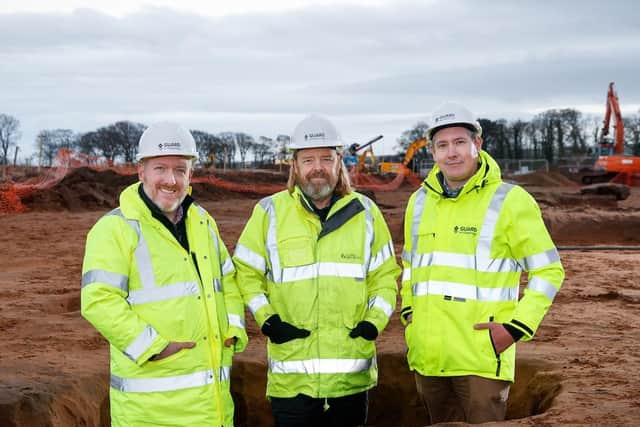Bannockburn battlefield archaeology firm becomes employee owned to 'protect jobs'


Guard Archaeology, which has offices in Glasgow and Edinburgh, has transferred 100 per cent of its shares to 32 staff via an Employee Ownership Trust.
The business provides a range of archaeological services throughout Scotland, predominantly working in advance of construction or infrastructure projects and with community heritage groups.
Advertisement
Hide AdAdvertisement
Hide AdRecent successes have included locating the real battlefield of Bannockburn and finding a previously unknown Roman army camp in Ayr.


In Carnoustie the company excavated the largest Neolithic hall ever found in Scotland, while in Galloway it uncovered a lost Dark Age royal stronghold.
Guard was formerly part of Glasgow University and began trading independently in 2011, owned by 11 employee shareholders. The majority shareholders decided to transition to an employee-owned model to ensure jobs would stay in Scotland when they eventually exit the business.
Keeping jobs in Scotland
Director Ronan Toolis said: “Given we were owned by several shareholders who all worked in the business, it was important to us that the company wasn’t sold to a single buyer or that control of the company was moved out of Scotland where the bulk of our work is undertaken.
“The previous majority shareholders will continue with their day to day roles in the business for as long as is required, with the knowledge that the future is taken care of, while our employees are given a stake in the business and a role in how it is run.
“This will hopefully increase job satisfaction, productivity and make them more engaged whilst ensuring we continue to deliver a high quality service to our clients.”
Director John Atkinson added: “Protecting jobs was also an extremely important factor in our decision. Many employees have been with the business for a long time and have played a vital role in its success.
“Moving into employee ownership gives the opportunity for job security to everyone who works here and enables them to have collective control of their future.”
Advertisement
Hide AdAdvertisement
Hide AdThe transition was supported by Co-operative Development Scotland (CDS), with the process managed by 4-consulting, legal services from Blackadders, and accountancy services by RJ Hart.
Head of CDS Clare Alexander said: “The majority shareholders wanted a solution that would enable them to manage their succession long term, whilst ensuring that jobs were rooted in the local area and the original ethos of the company was retained.”
CDS cited research that staff-owned companies show higher levels of profitability, increased productivity and enhanced employee wellbeing compared to non-employee-owned counterparts.